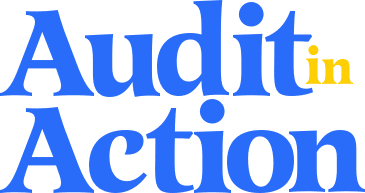Auditor Independence: A Cornerstone of Audit Quality
Our capital markets are an important engine for driving and maintaining our economic and societal well-being and they rely on the independent third-party assurance that auditors are able to provide. Enhancing the trust and reliability of this information is a key aspect of the public interest role that public company auditors play.
“Auditors are the gatekeepers of trust,” said Vanessa Teitelbaum, Senior Director of Professional Practice at the CAQ. “They independently evaluate a public company’s financial information that investors use to decide if they want to invest in those companies.”
Auditor independence is a cornerstone of audit quality. Independence underpins the very credibility of the audit and, ultimately, its value to capital markets.
“Without auditor independence, an investor is unable to conclude that the auditor has maintained their objectivity and has not been inappropriately influenced when delivering their opinion on financial statements and relevant financial information,” said Christopher Tower, National Managing Partner – Quality, Independence and Assurance Risk Management at BDO. “Accordingly, it is absolutely essential for investors to have trust and confidence in the financial information public companies release.”
In the US, auditors have strong market-based incentives – including reputation and litigation– to have an independent mindset. Auditors also have regulatory requirements to maintain independence as established by the landmark Sarbanes-Oxley Act in 2002.
“In the US, standard setters including the SEC, PCAOB and AICPA have robust rules around auditor independence,” said Shawn Gilbert, National Partner in Charge, Independence at KPMG. “All of that was strengthened back in the early 2000s with the advent of the Sarbanes-Oxley Act. In the SEC’s rules, they require large audit firms to have a system of quality control that describes the baseline of what that system of quality control should contain.”
Tower added, “The law specifies that audit committees operating independently from management are responsible for hiring, compensating, and overseeing the external audit firm. Further, the auditors of public companies are required to follow rigorous personal and firm independence rules.”
“The US is the gold standard for auditor independence,” said Teitelbaum. “These rules have contributed to thousands of high-quality audits completed every year.”
The audit of a company’s financial statements requires not only independence, but also a wide range of expertise across auditing and accounting standards. Complex business transactions often involve management estimates and assumption that can require the auditor to use the work of specialists (as defined by the PCAOB) and an understanding of industry sectors and their related business processes and regulatory matters.
It is the combination of auditor expertise and independence that bolsters the level of trust and confidence in company financial statements and forms the basis of audit quality—and, thus, value to capital markets.
To learn more about auditor independence, visit the CAQ’s report, Value of the Audit: A Brief History and Path Forward.

